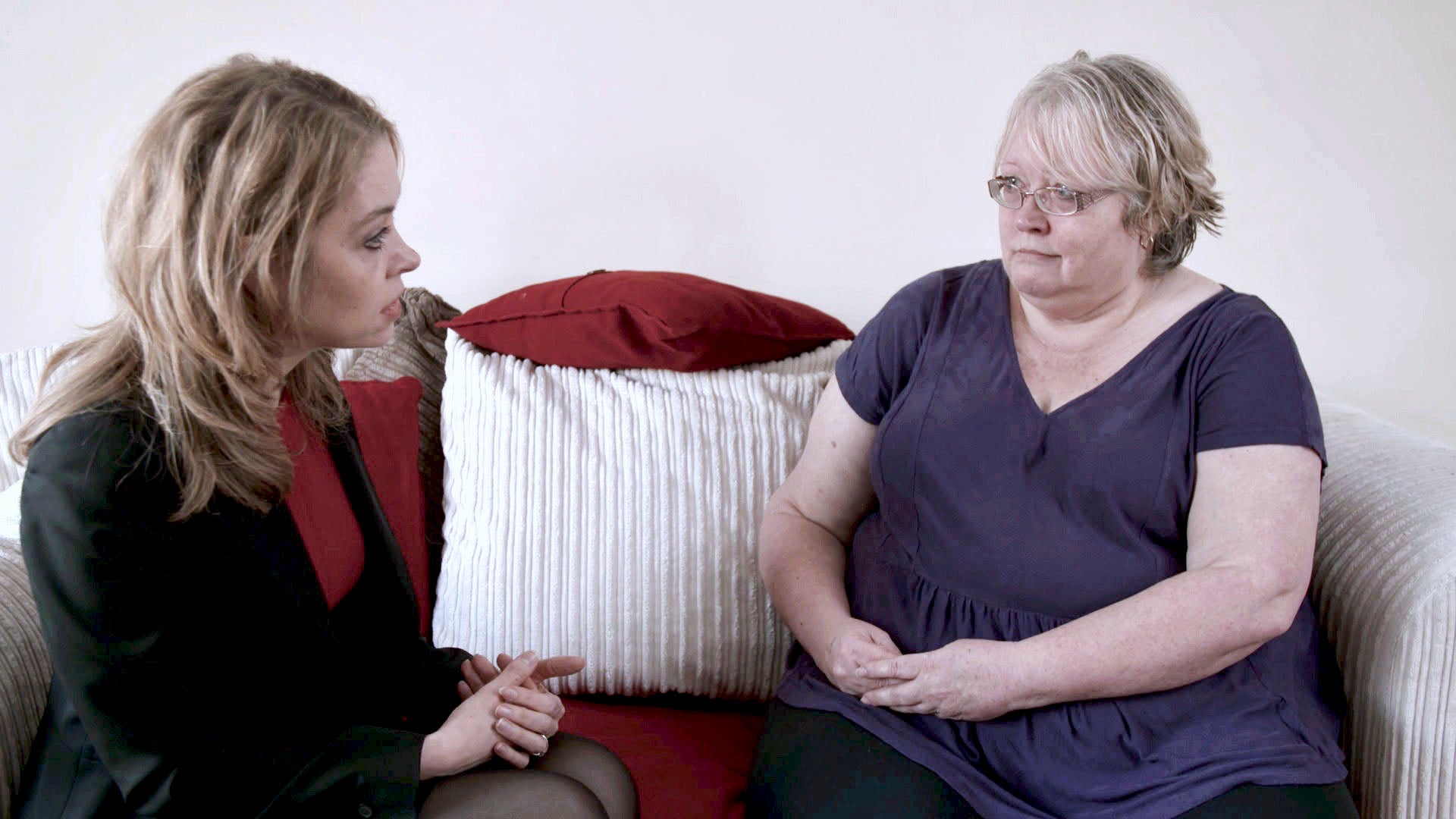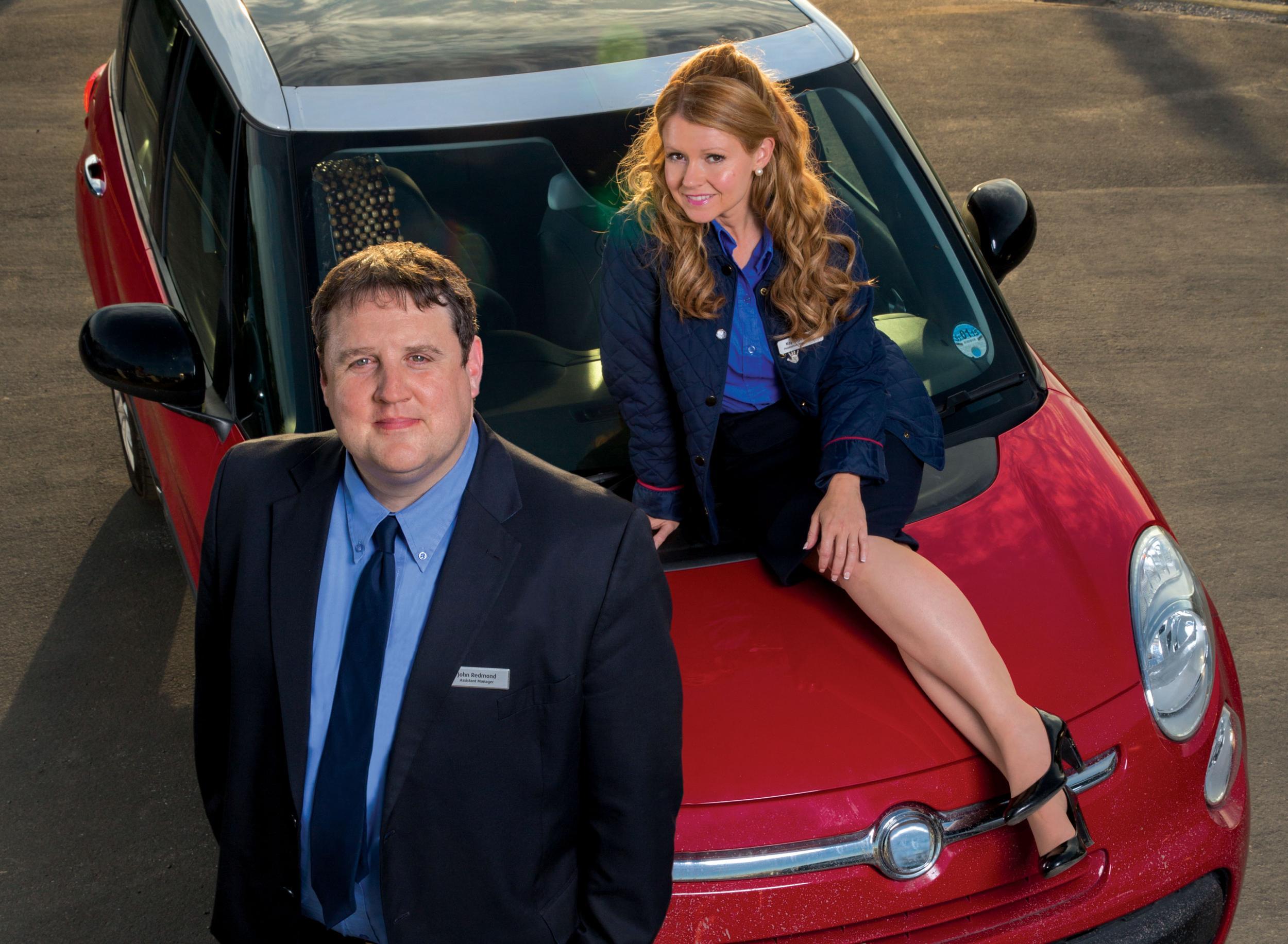Last night's TV review: Obesity: How Prejudiced is the NHS? (BBC2); Peter Kay's Car Share (BBC1)
Chips with everything

Your support helps us to tell the story
From reproductive rights to climate change to Big Tech, The Independent is on the ground when the story is developing. Whether it's investigating the financials of Elon Musk's pro-Trump PAC or producing our latest documentary, 'The A Word', which shines a light on the American women fighting for reproductive rights, we know how important it is to parse out the facts from the messaging.
At such a critical moment in US history, we need reporters on the ground. Your donation allows us to keep sending journalists to speak to both sides of the story.
The Independent is trusted by Americans across the entire political spectrum. And unlike many other quality news outlets, we choose not to lock Americans out of our reporting and analysis with paywalls. We believe quality journalism should be available to everyone, paid for by those who can afford it.
Your support makes all the difference.“I’m a fattist”. Well, I was taken aback when I heard that, in the course of Obesity: How Prejudiced is the NHS?, the BBC’s latest contribution to the great chubster debate.
The words came from the over-active gob of Daily Mail columnist, former Conservative spin doctor and professional “Glenda Slag” style controversialist Amanda Platell. I thought it’d be impossible to hear that kind of nastiness in public now, such is, supposedly, the prevailing reign of terror perpetrated on an unwilling nation by the liberal elite/PC-brigade/remoaning thought-police who are supposed to run Britain these days.
Well, it did happen, but thanks to the advocacy of Rachel Batterham, doctor and researcher at University College London, we were able to witness the first known example of a gobshite apparently changing their mind before our very eyes, itself a medical miracle. Yes, Professor Batterham managed to change Ms Platell’s opinions, or appeared to. More to the point, she also managed to alter the outlook of some health service professionals she met during her cruise down the alimentary canal of Britain’s obesity epidemic. These are people who believe, if you’ll pardon the medical jargon, that if the wobble-bottomed idiots ate fewer chips and custard creams then they’d be OK, and they therefore shouldn’t take priority over properly sick people who need the NHS. Why should the taxpayer pay?
Which is fine if you’re prepared to have stroke victims, say, just left to die. If you are not so callous, then it makes a great deal of financial sense to spend NHS money now on making their stomachs and their appetites smaller that they are less at risk of developing chronic and chronically expensive diseases.
Bariatric surgery, in which Professor Batterham is an expert, is not just about stomach “stapling” or gastric bands, and there is a whole range of clever procedures which I won’t spoil your next meal by going into, especially the phenomenon of “dumping syndrome”. Suffice to say that an operation immediately relieves type 2 diabetes, for example, and reduce the risks of high blood pressure, cancers, joint failure and myriad other fat-related ailments that burden the NHS.
Me? I managed to drop two stone just by cutting out cheese, curries and cakes. I’m being deliberately flippant, and I know how difficult fighting the flab is: anyone leading a normal lifestyle will almost inevitably put on weight. Obesity is an unusual disease because it is not confined to class. Your body doesn’t know the difference between, say, cans of special brew and bottles of fine wine, or between pasta with some truffly creamy sauce from the best restaurants or a cheese and onion pasty from Greggs. Or sitting on your backside in an art house cinema or slumped on the sofa in front of Mrs Brown’s Boys (though that would trigger clinical depression in me). It is because of that realism about weight and obesity that I support bariatric surgery “on demand” on the NHS saving some cash by investing in making people thinner and healthier. I feel like starting the Anti-Fattist League. Me and Amanda Platell. Wanna come on a calorie-burning march?

Of the home-made crinkle-chip enthusiast John and his friend Kayleigh, all I can say is welcome back Peter Kay’s Car Share. In their red Fiat 500 estate the pair of supermarket workers are a little like Dr Who and his companion, travelling through time and space and occasionally stopping off to encounter strange and sometimes hostile life forms all along the way. And, like the Doctor and his sidekick, their relationship is accidental – thrown together by fate, after all – and always fragile, waiting for some intervention that will end their partnership for ever. Especially round Bolton.
The scare at the start of this second series was that Kayleigh’s house move meant that she would no longer need a lift off John and that, therefore, Peter Kay’s Car Share would transmute into Peter Kay’s Quite-Long- But-Often Interrupted-By-a-Bad-Signal-With-Acidental-Dialling-Added-To-Confuse-Things. Share. But no, the time traveller needed his companion more than his companion needed her, and they are reunite d in their four-wheeled Tardis, even if the new route is a bit out of his way.
I think I am most grateful, though, for Kay’s expert skewering of the unpleasant humanoid he stops at the lights next to him – an example of that breed of beardy, sanctimonious, passive-aggressive cyclists who go around looking for an argument, helmet-cam at the ready to “shame” car drivers on after they have goaded them into a reaction. Like any Time Lord would, Peter Kay is prepared to take on this evil, despite the formidable odds and the YouTube clip that goes viral across the known universe.
Join our commenting forum
Join thought-provoking conversations, follow other Independent readers and see their replies
Comments